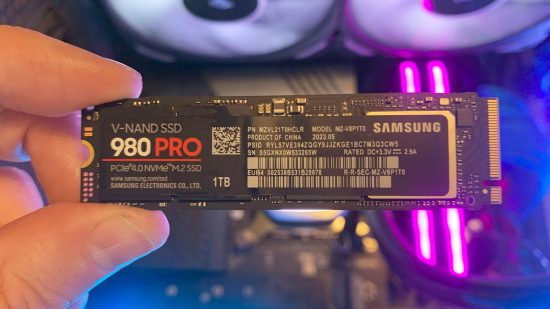Our Verdict
After a shaky launch, the Samsung 980 Pro is now one of the best-value PCIe 4.0 SSDs you can buy, as long as you can find it at the right price. However, you'll need a heatsink for it, and the WD Black SN850X is a better option if it's going cheaper.
- Fast read speed for a PCIe 4.0 drive
- Often available for great price
- Above average endurance rating
- Write speed lags behind competition now
- New PCIe 5.0 drives are much faster
- Throttles without heatsink
Unlike the standard 980, the Samsung 980 Pro uses the PCIe 4.0 interface, with Samsung claiming it can churn out a high read speed of up to 7,000MB/s. This now mid-range SSD launched at a disappointingly high price, but it’s thankfully much cheaper now, and if you like around you can regularly find it available with a hefty discount in online sales.
Since its original release, several manufacturers have launched faster PCIe 5.0 SSDs, but the PCIe 4.0 Samsung 980 Pro is still worthy of a prestigious place on our best SSD for gaming guide. It might not have the fastest benchmark results any more, but these figures rarely translate into real world benefits for most PC users, especially when it comes to gaming, and the Samsung 980 Pro is often available for really generous price these days.
Why you can trust our advice ✔ At PCGamesN, our experts spend hours testing hardware and reviewing games and VPNs. We share honest, unbiased opinions to help you buy the best. Find out how we test.
Samsung 980 Pro specs
These are the Samsung 980 Pro specifications:
| Interface | 4x PCIe 4.0 |
| Protocol | NVMe |
| Form factor | M.2 2280 |
| Capacities | 250GB, 500GB, 1TB (tested), 2TB |
| Formatted capacity | 931GB (2TB version) |
| Controller | Samsung Elpis |
| Max read speed | 7,000MB/s (1TB version) |
| Max write speed | 5,000MB/s (1TB version) |
| Endurance rating | 600TBW |
| Warranty | Five years |
| NAND | Samsung V-NAND 3-bit MLC |
With the Samsung 980 Pro, we finally got to see an SSD with some different silicon under the hood than the usual Phison controller that was used for the first run of PCIe 4.0 drives, and it comes with some seriously high claimed speeds for this Samsung drive.
The company claims the 980 Pro has a sequential read speed of 7,000MB/s, which might not be much compared to the latest PCIe 5.0 drives, such as the new Crucial T705, but it’s not far off the limit of the PCIe 4.0 interface. It’s also around 2,000MB/sec faster than plenty of other PCIe 4.0 drives, basically enabling you to dish out an additional 2GB/sec when transferring files from the SSD over a PCIe 4.0 interface.
Compared to Samsung’s fantastic PCIe 3.0 Pro drives, the 980 Pro uses TLC rather than multi-level cell (MLC) NAND, which is cheaper, but slower and less durable in terms of write endurance.
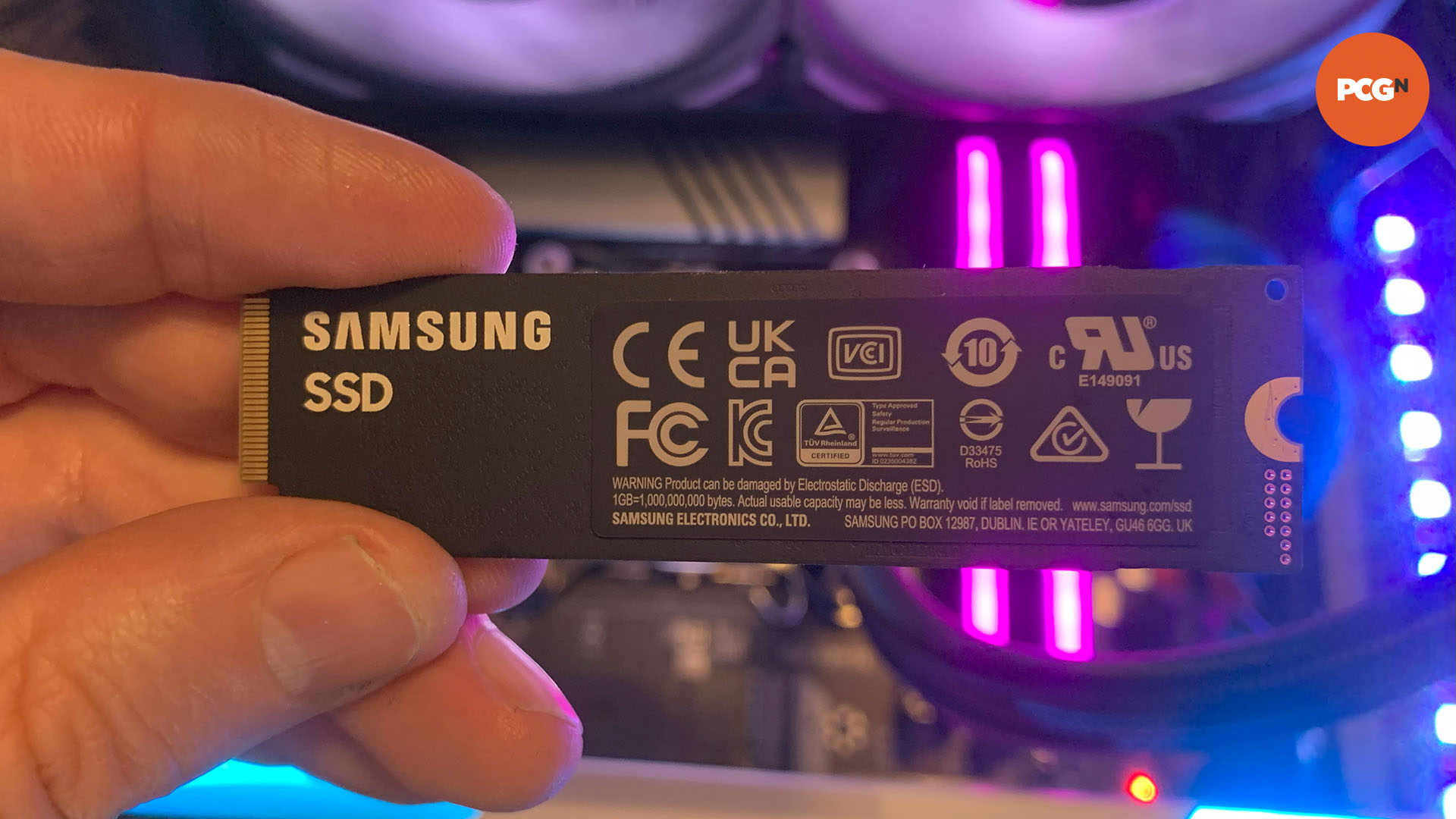
As a result, the terabytes written (TBW) rating has fallen from 1,200TB to just 600TB, although the overall warranty still stands at five years. Unless you absolutely hammer the drive and write over 2TB of data to the drive each week, then you won’t get near that limit.
The 1TB model we’re testing also has a 114GB single-level cell (SLC) cache. This means that if the drive is filled to full capacity, there will be a marked drop off in performance as the SSD starts writing directly to the tri-level cell (TLC) NAND. However, it’s unlikely you’ll see that happen, even if you deal with lots of large files regularly.
Like previous Samsung M.2 SSDs, the 980 Pro lacks a fully-fledged heatsink, and instead has a thin sliver of copper sitting on the underside of the SSD. During our thermal stress test, the drive reached a peak temperature of 81°C, which is undeniably toasty, but bear in mind that most PCIe 4.0 motherboards are equipped with heatsinks that will help rein in those temperature spikes.
You can also now buy a version of the Samsung 980 Pro with a heatsink pre-fitted, and we recommend buying this version if your motherboard doesn’t have any M.2 heatsinks with it, as this drive can get hot when it’s running at full pelt.
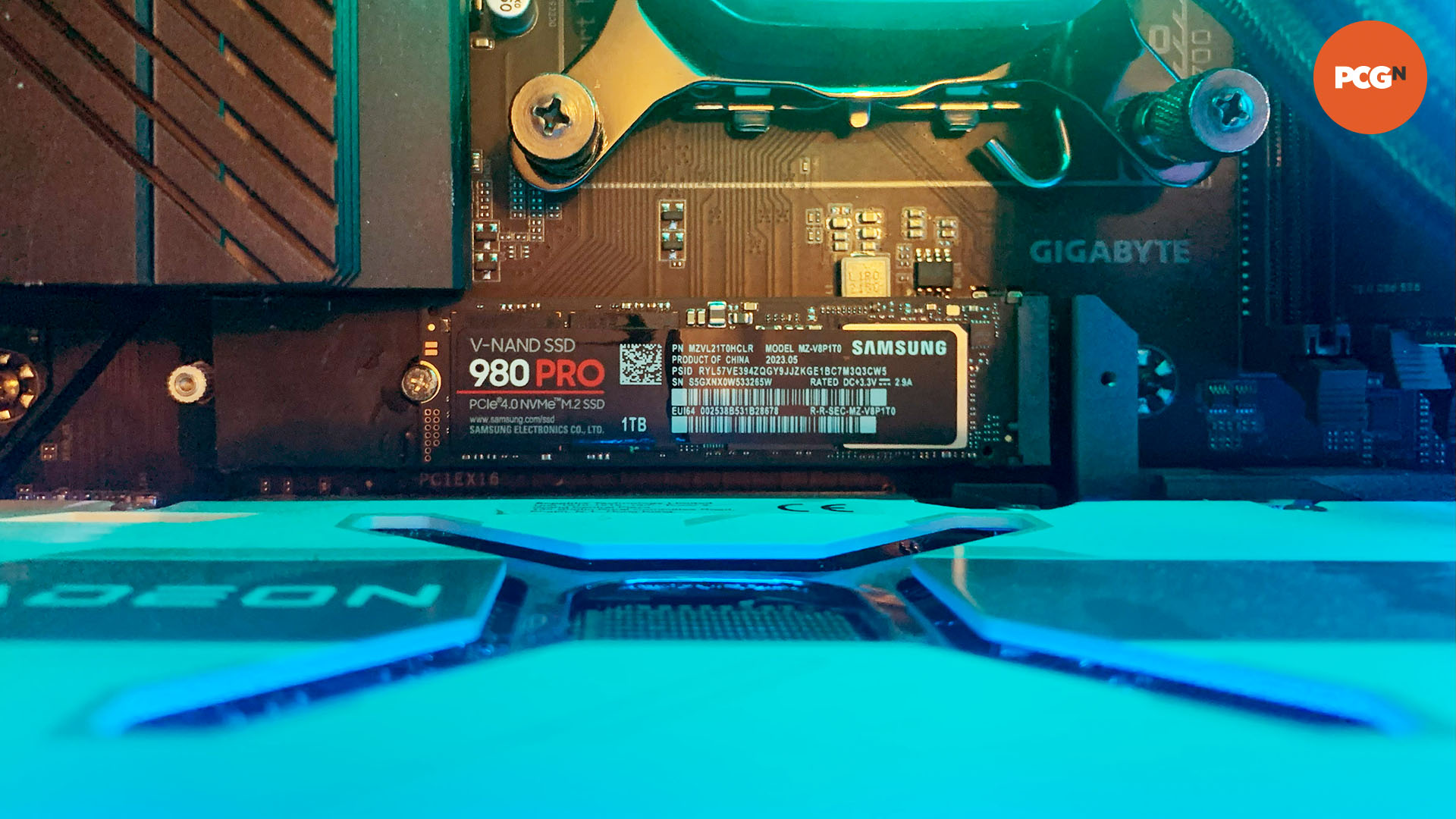
Pleasingly, the Samsung 980 Pro also has a wide range of capacities available, with models ranging across 250GB, 500GB, 1TB, and even 2TB options. Given the current pricing of the drive, that’s great, as it means you can pick up a lot of fast storage for not much money.
The 980 Pro also comes with Samsung’s Magician software, which has more modern appearance than the other PCIe 4.0 SSD manufacturers’ software packages we’ve tested. It allows you to see drive information, run performance benchmarks, adjust over-provisioning, and perform performance optimization, as well as view the drive’s health and how much data has been written to it.
Samsung offers free separate data migration software as well, which is handy if you already have another Samsung SSD, as you can just copy your existing Windows installation, complete with software, games, and files, directly over to the new drive without having to reinstall your operating system.
Samsung 980 Pro performance
Impressively, Samsung’s performance claims largely held up to scrutiny in our benchmarks. The sequential speeds in CrystalDiskMark were great for a PCIe 4.0 drive, with a read speed of 6,866MB/s, which is nearly 2GB/s faster than a lot of other PCIe 4.0 drives, such as the ADATA XPG GAMMIX S50 Lite, and a boon if you regularly shunt big files around. The write speed of 4,913MB/s was rapid too, being a good 700MB/sec quicker than much of the competition.
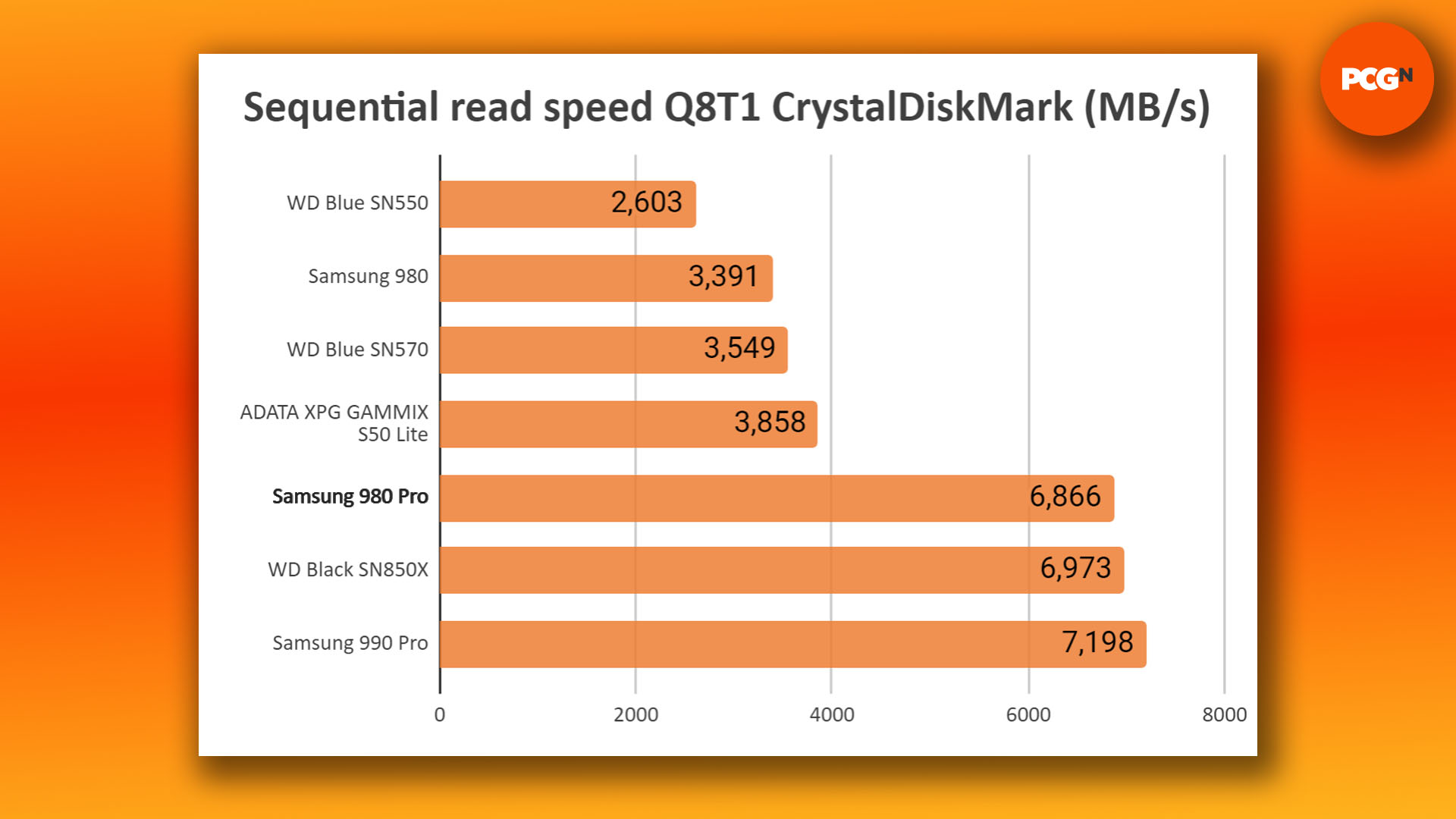
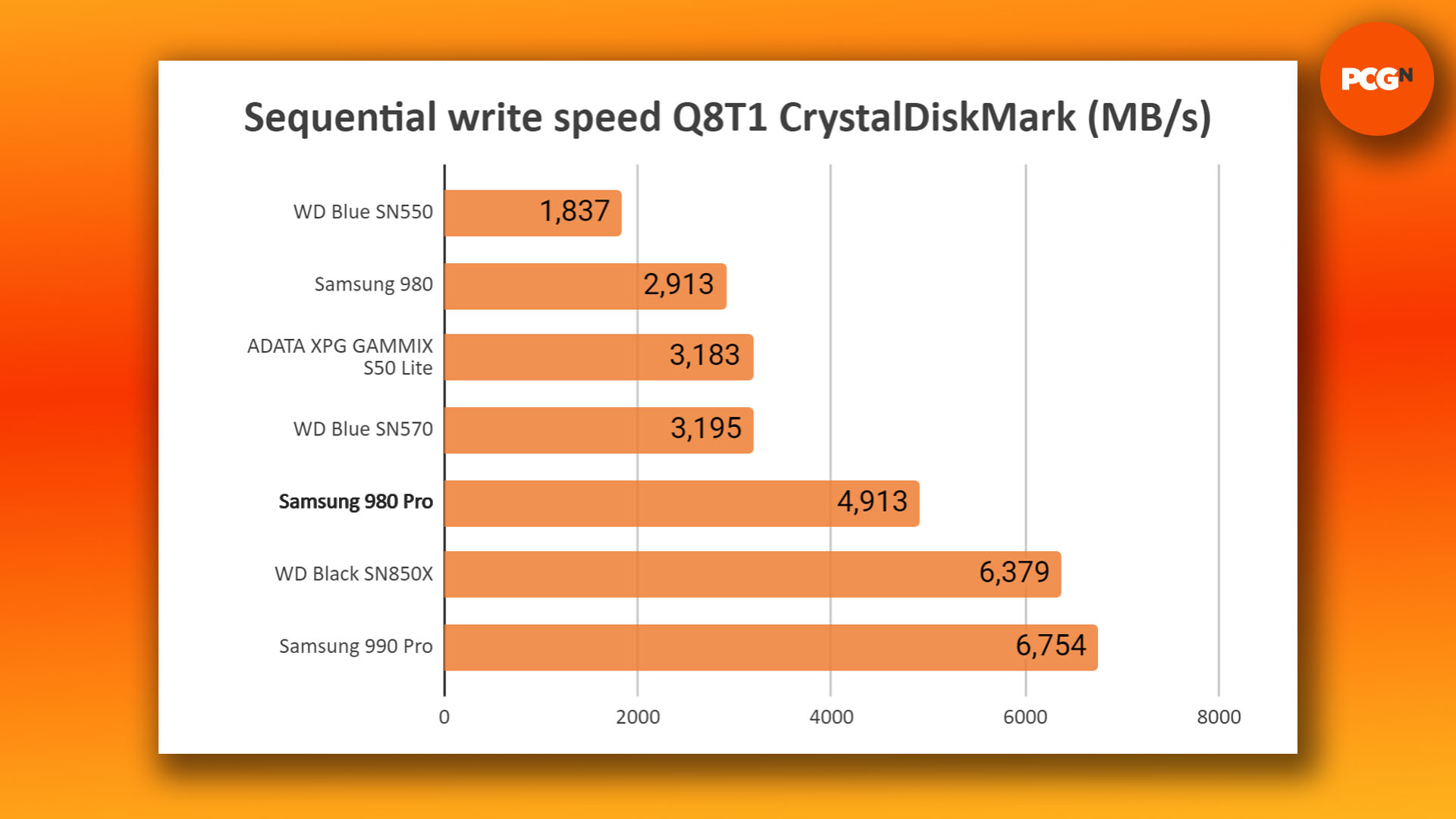
Both these figures are, of course, both surpassed by PCIe 5.0 drives, as well as the very latest PCIe 4.0 drives, such as the WD Black SN850X, particularly when it comes to the write speed. However, the often cheap pricing of the Samsung 980 Pro really helps it here – it’s plenty fast enough, and it’s cheap too.
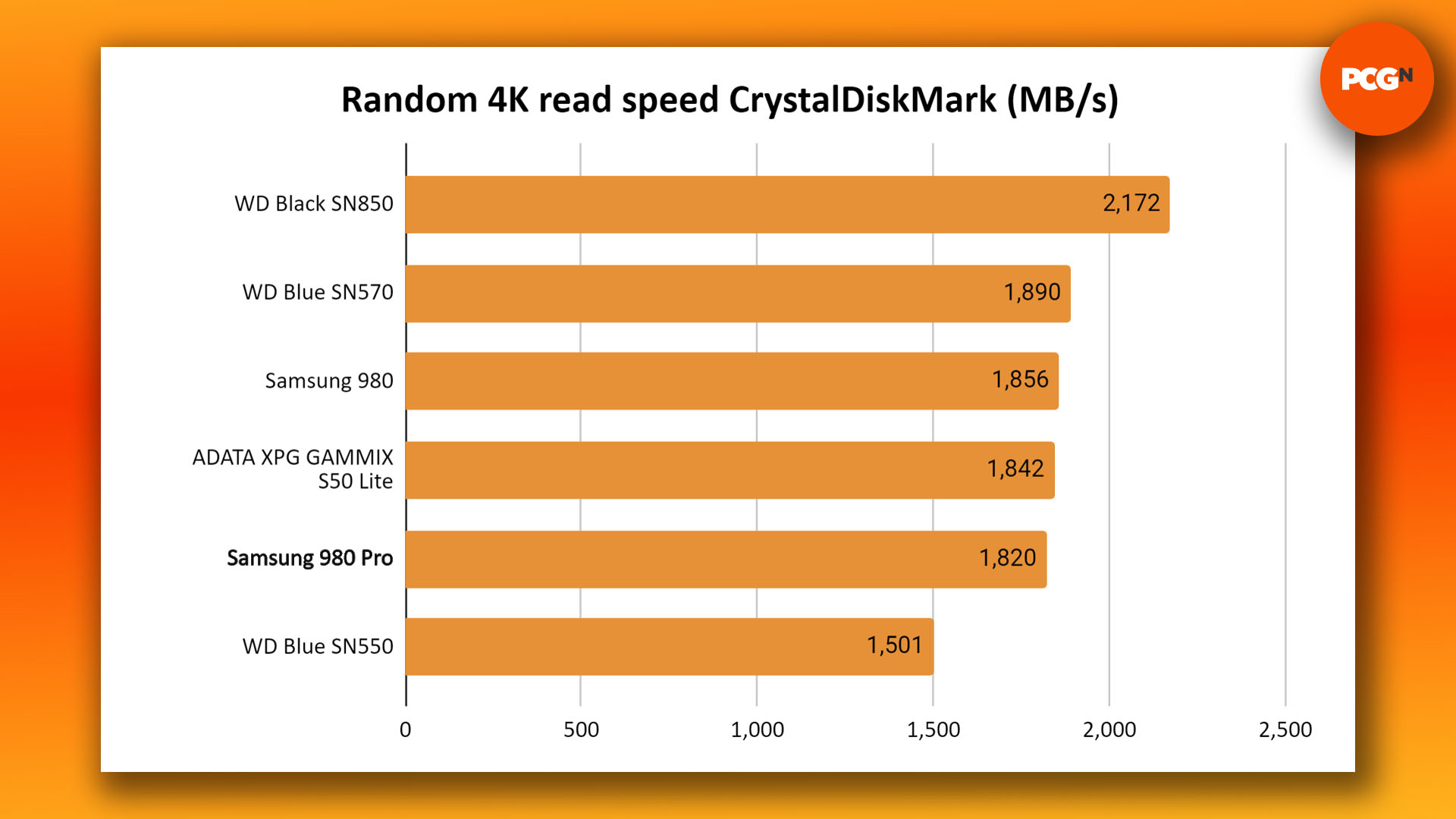
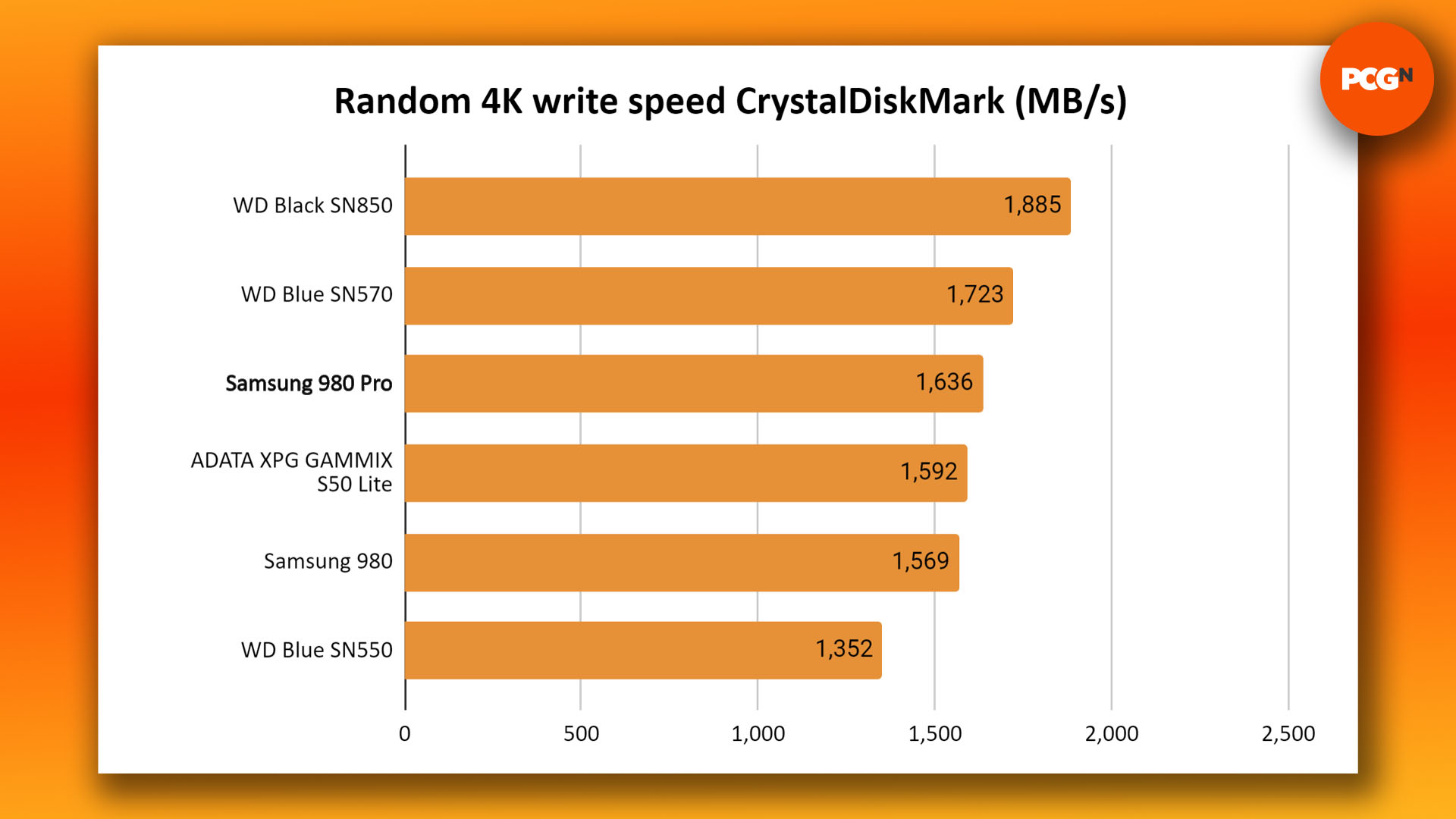
However, 4K random performance was sadly average at best, and the Samsung 980 Pro certainly didn’t have an advantage over ostensibly slower PCIe 4.0 SSDs I’ve tested recently.
The other notable exceptions were seen in our our AS-SSD IOPS tests, where the Samsung pulled in front of some of the other drives I’ve recently tested, but not by a huge margin.
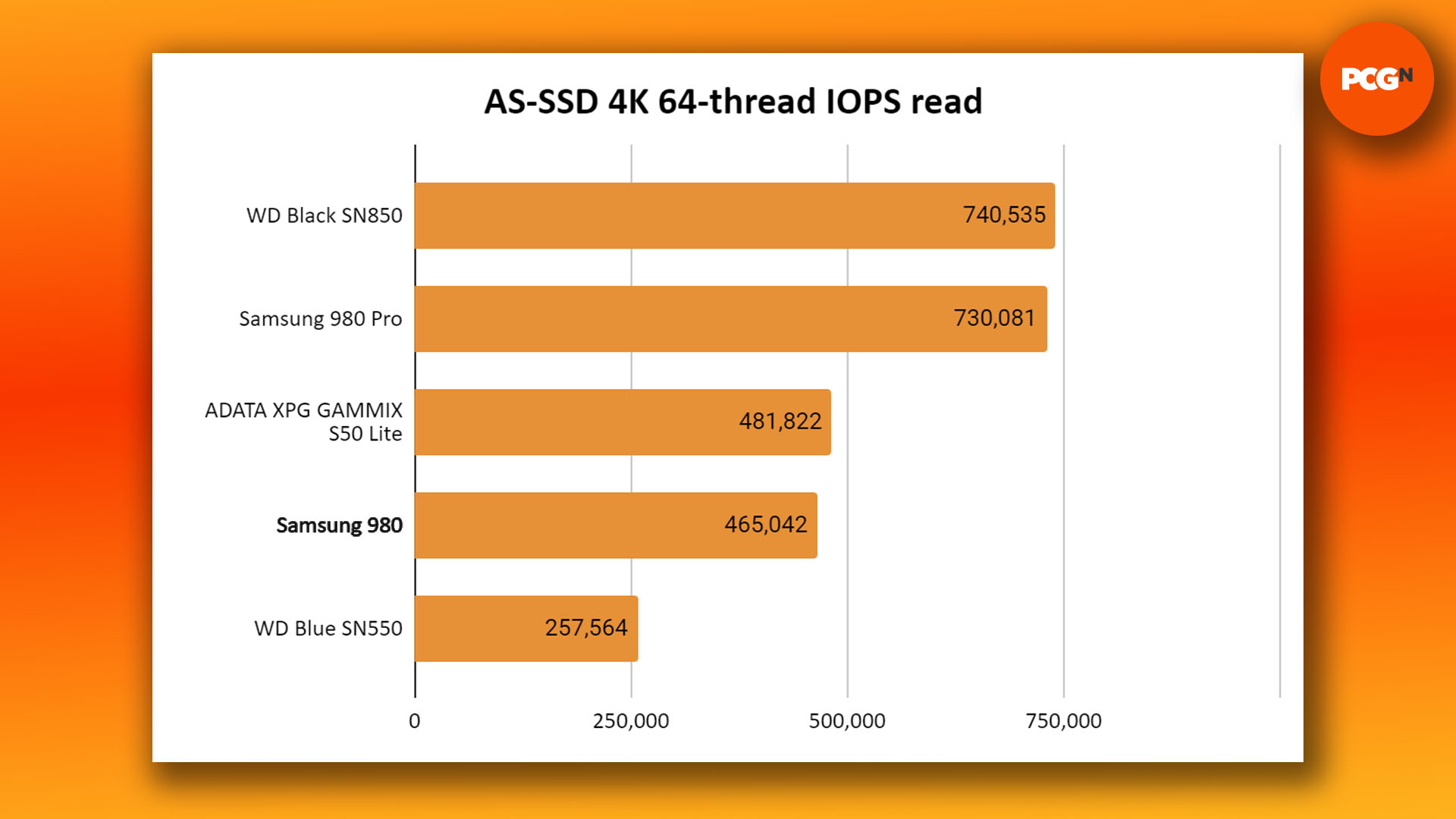
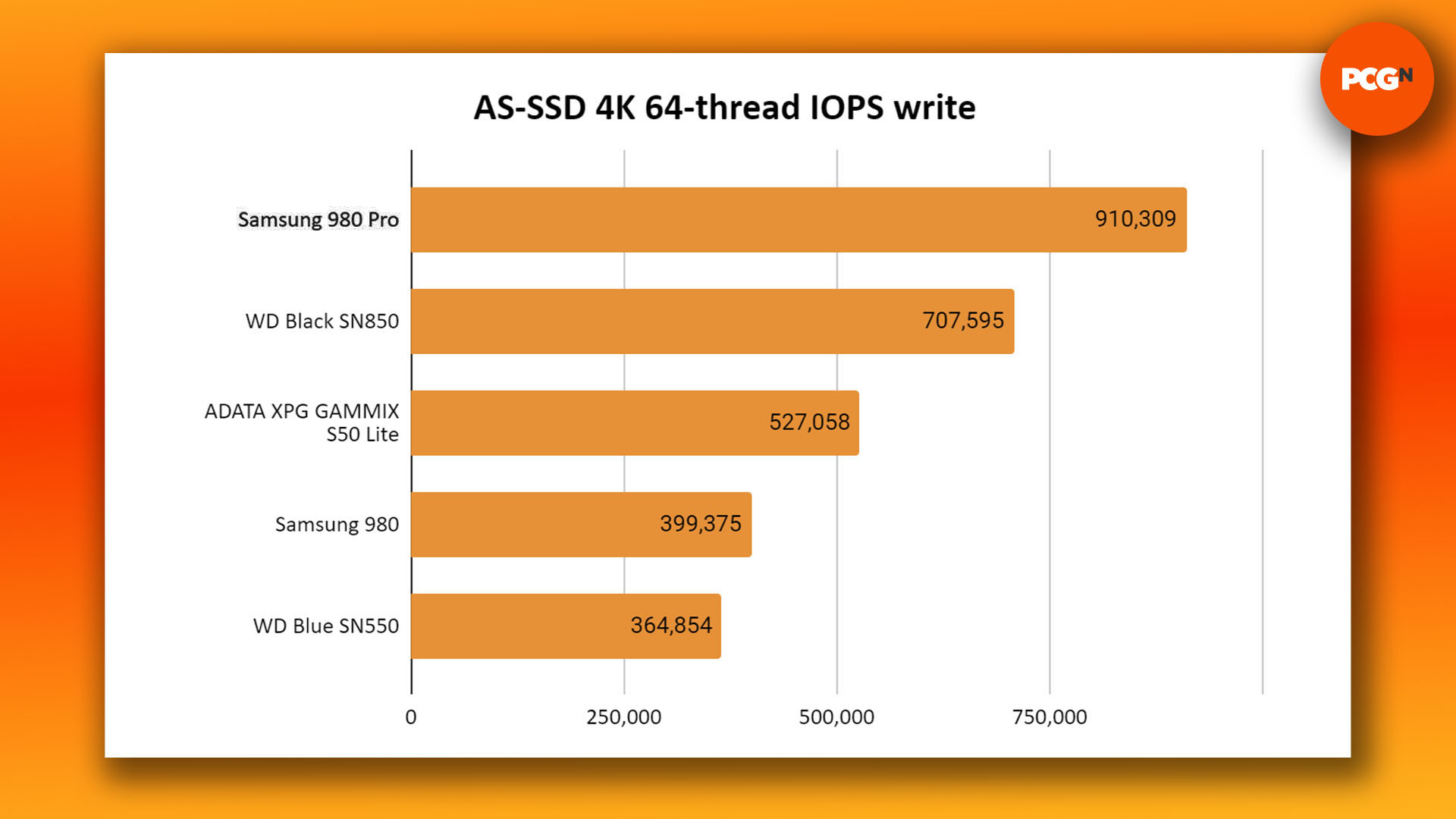
Samsung 980 Pro price
Thanks to some recent discounting, the price of the Samsung 980 Pro is now very competitive. That’s good, as it was overpriced when it first came out, especially compared to the other PCIe 4.0 competition.
You can normally pick up the 1TB Samsung 980 Pro for well under $100, and often for under $80 when it’s on offer – we’ve even seen it drop as low as $59.99 on Amazon. The price of SSDs fluctuates a lot, though, and while the Samsung 980 Pro usually goes for a good price these days, the WD Black SN850X should be your first choice if it’s going cheaper than the Samsung drive.
Samsung 980 Pro conclusion
After a shaky launch, the Samsung 980 Pro has now shaped up to be one of the best value gaming SSDs you can buy. It’s no longer the fastest drive on the PCIe 4.0 block, let alone the PCIe 5.0 block, but its read speed of nearly 7,000MB/s is still plenty for moving large files.
Also, while its write speed of just under 5GB/s is eclipsed by many of the latest drives, you rarely see this performance in most real world use, and the usually low price of this drive more than makes up for it. It’s definitely worth keeping an eye on the price, though.
The Samsung 980 Pro is often available for very generous prices, as we mentioned earlier, but the WD Black SN850X is also often an offer, and the latter is the superior drive if it’s going for the same price or cheaper than the 980 Pro. We recommend either buying the heatsink-equipped version of the 980 Pro, though, or fitting a heatsink that comes with your motherboard, as this drive does overheat and throttle without one.
Alternatives
WD Black SN850X
The current king of PCIe 4.0 SSDs is a tough one to beat, with fantastic performance, and a nifty game mode that genuinely improved loading times in our WD Black SN850X review. If you can afford to spend a bit more on your PCIe 4.0 SSD, then this is the drive to get, and it sometimes goes for cheaper than the Samsung 980 Pro when it’s on offer too.
